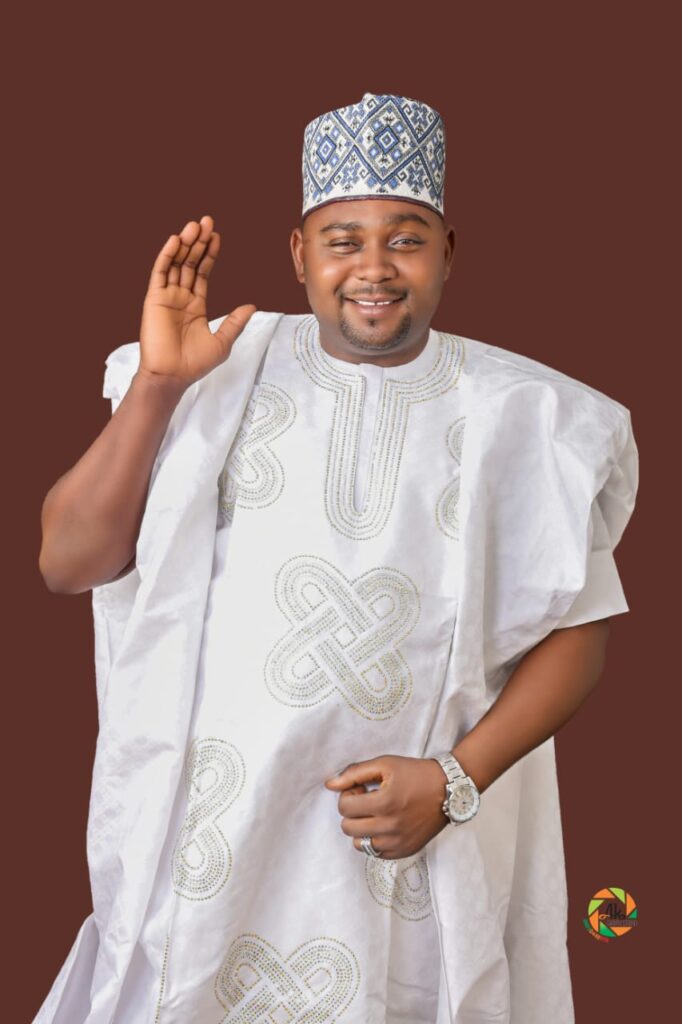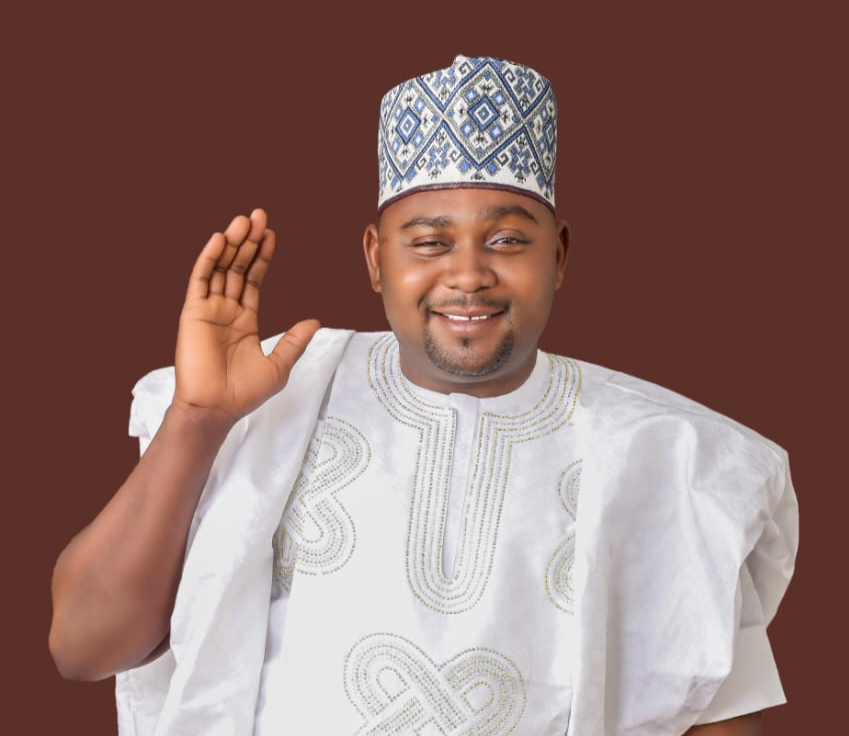In this exclusive chat, Surveyor Danjuma Okoliko, a seasoned professional and newly inducted member of the All Progressives Congress (APC) in Imane Olamaboro Local Government Kogi State, speaks on his motivations for joining the party, his admiration for Governor Ahmed Usman Ododo’s leadership style, and his professional insight into the Renewed Hope Housing initiative. He also reflects on his warm reception in Imane, the strong support he enjoys from APC stakeholders, and his vision for grassroots transformation in Kogi State and beyond.
Surveyor Danjuma Okoliko believes that his entry into the APC adds a professional voice to Kogi’s political landscape. With his strong community roots, technical expertise, and admiration for the purposeful leadership of Governor Ahmed Usman Ododo and President Bola Ahmed Tinubu, he represents a growing movement of professionals aligning politics with performance.
Sir, can you briefly introduce yourself and share your professional background before venturing into politics?
I am Surveyor Danjuma Okoliko, a registered professional surveyor with years of experience in land administration, estate development, and spatial planning. Over the years, I have worked on major cadastral and infrastructural projects across Nigeria. My background in surveying exposed me to the realities of development planning and the direct relationship between good governance and sustainable infrastructure. That exposure shaped my interest in leadership and politics.
What influenced your decision to join active politics, and why did you choose the All Progressives Congress (APC)?
I joined politics out of a deep desire to contribute more directly to the development of my community and state. The APC has demonstrated focus and consistency, especially under the purposeful leadership of Governor Ahmed Usman Ododo. His leadership philosophy of inclusiveness, discipline, and continuity resonates with my personal values. The APC remains the platform where competence and patriotism can translate into tangible results.
You were recently received warmly in Imane when you formally joined the APC. Tell us about that event and how it made you feel.
The reception at Imane last week was deeply humbling. It showed me how loved I am, and how deeply The people have anticipated my coming. We wanted to make it a brief ceremony, but it escalated into some sort of mini rally as people came out enmasse to receive me and my supporters. The people welcomed me wholeheartedly, and it was clear that they appreciated the intention behind my political move. It wasn’t just about joining a party—it was about joining hands with a vision of progress. Seeing my people gather in unity gave me a renewed sense of responsibility to serve selflessly.
Why do you think the people of Imane received you so warmly?
I believe it’s because they know my track record. Over the years, I have been involved in several community-based projects without holding political office—initiatives in youth empowerment, land development facilitation, and educational support. The people understand that my motivation is service, not personal gain. Their warm reception was a reflection of trust and shared hope.
Do you enjoy the support of APC stakeholders and political leaders in Imane?
Absolutely. I have the strong support of APC stakeholders in Imane. Before joining the party, a number of them are close to me and have wanted me to be around. One thing with my community is that we love each ourselves and can be very much trusted. So, it was not our of place to see key party players like The likes of Comrade Onuh Edoka, the Special Adviser to the Governor on Labour Matters, along with several former and serving political office holders, received me warmly into the fold. Their encouragement and solidarity show that we are all committed to strengthening the party and delivering meaningful development to our people.

Surveyor Danjuma Okoliko
What specifically about Governor Ahmed Usman Ododo’s leadership style inspired you to join the APC?
His Excellency, Governor Ahmed Usman Ododo represents a new era of responsible governance. His calm disposition, clear policy direction, and ability to sustain the developmental legacy of his predecessor are commendable. What stands out for me is his humility and commitment to grassroots empowerment. He leads by example, emphasizing accountability and inclusiveness—a model of leadership every emerging politician should emulate. You can see the level of peaceful and willing followership he commands.
How do you assess his administration’s approach to grassroots development so far?
The Ododo administration has demonstrated that real leadership begins at the grassroots. His focus on rural infrastructure, local government empowerment, and youth engagement shows he understands that development must start from the bottom up. As someone who has worked in rural mapping and land planning, I can say his strategy aligns perfectly with sustainable community development principles.
In your opinion, how has the APC in Kogi State evolved under Ododo’s leadership?
The APC in Kogi has become more united and strategically focused. Governor Ododo has fostered internal cohesion and opened up the political space for professionals and youths to participate meaningfully. It’s no longer about politics of personality; it’s about results and impact.
What are some of the community-based projects you have initiated or supported in recent years?
Over the years, I’ve supported several community initiatives, including sponsoring land documentation programs for small landowners, promoting local mapping exercises for rural development planning, and facilitating youth training in digital surveying. I’ve also contributed to water borehole projects and educational support schemes for students from low-income families. My belief is that development begins with empowerment.
As a professional surveyor, how do you view the Renewed Hope Housing Estates being launched across Nigeria by President Bola Ahmed Tinubu?
The Renewed Hope Housing initiative is a landmark policy. From a professional perspective, it reflects foresight and commitment to addressing one of Nigeria’s biggest socio-economic challenges—housing. If implemented with geospatial accuracy, transparency, and proper urban planning, it will reduce the housing deficit, stimulate the construction industry, and create massive employment opportunities nationwide.
How impactful do you think this housing policy will be at the grassroots level?
Very impactful. Affordable housing is not just about owning a house—it’s about dignity and stability. By situating these estates strategically across regions, the policy will reduce rural-urban migration, improve living conditions, and foster community-based economic growth. For families at the grassroots, it means security, comfort, and opportunity.
You’ve spoken positively about both Governor Ododo and President Tinubu. Why do you believe they deserve re-election when the time comes?
Both leaders share a common trait—vision backed by action. President Tinubu’s Renewed Hope Agenda is restructuring our economy and driving infrastructural expansion. Governor Ododo’s governance model in Kogi is practical and transparent. Continuity in their leadership would ensure stability and sustained progress. Their re-election would not just be a political decision—it would be a vote for ongoing transformation.
What do you see as the biggest challenge facing developmental projects in Nigeria, and how can professionals like you help overcome them?
The biggest challenge is inconsistency in planning and data management. Many projects fail because they are not based on accurate spatial and demographic data. Professionals like surveyors can help by providing reliable geospatial information, ensuring that development aligns with real community needs. Good data leads to good governance.
What personal goals do you hope to achieve in your political journey within the APC?
My goal is to use my technical expertise to influence policy and implementation in areas like land reform, urban planning, and youth development. I want to help the government bridge the gap between planning and execution. Ultimately, I aspire to serve as a catalyst for modern governance that integrates professionalism into politics.
Finally, what message would you like to send to young Nigerians who look up to leaders like you and aspire to serve?
I would tell them that leadership begins with service and integrity. Whatever field you are in—engineering, law, medicine, or surveying—develop yourself, stay consistent, and use your knowledge to make a difference. Nigeria needs young leaders with competence, courage, and conviction. Let’s all rise to the challenge of building the country we dream of.

